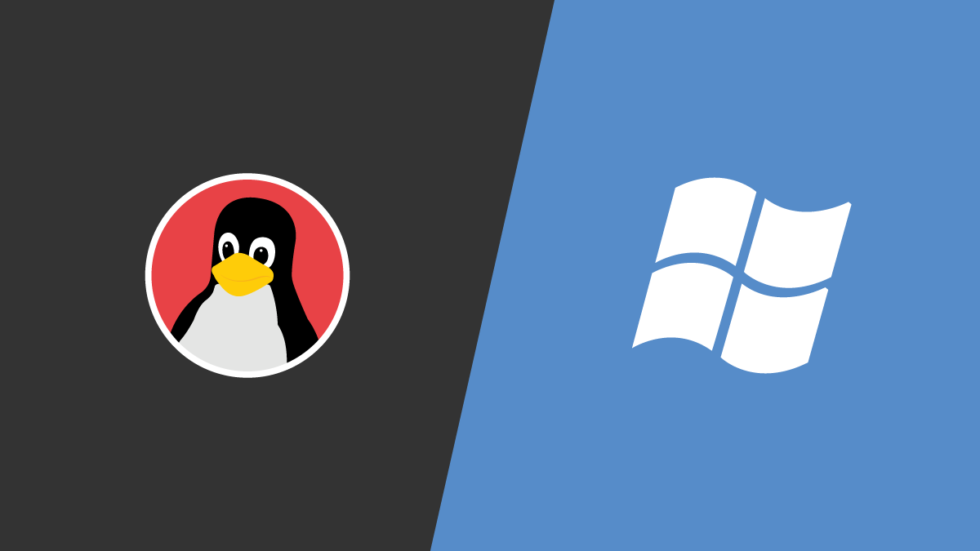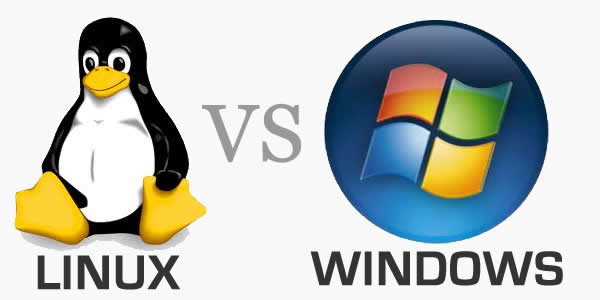Is Linux more secure than Windows?
While neither Linux or Windows can claim to be 100% bulletproof, the perceived wisdom is that Linux is more secure than Windows. We try to find out if that’s the case.
By Olga Apostolova January 22, 2020 57330 views
Not that long ago hackers were not sophisticated or organized in criminal networks and all operating systems were reasonably secure. Fast-forward a few years, stealing data has turned into a business, and security is on everyone’s mind. So a good time, then, to investigate if the niche operating system Linux is more secure than the most widely used one, Windows.
How secure is Windows?
77% of computers today run on Windows compared to less than 2% for Linux which would suggest that Windows is relatively secure. Indeed, recently, Microsoft introduced a massive improvement to its operating system’s codebase. They added their own antivirus software system, improved firewalls and implemented a sandbox architecture, limiting programs from accessing the memory space of the OS or other applications. Still, Windows is in a tight spot. As you might expect, the volume of malware developed for an operating system is proportionate to its popularity. Windows has a large market share and because of that, it is a bigger target for scammers. Compared to that, there’s barely any malware in existence for Linux. That’s one reason some consider Linux more secure than Windows. In addition, many believe that Windows architecture makes it a little easier for users to download malware compared to Linux. On Windows, all you need to do for viruses and spyware to run is to double-click on an “.exe” file. When we asked Vivaldi devs to verify this statement, they told us that there are some safeguards against that. By default, current versions of Windows will warn you if you download an “.exe” from the Internet using a technique called “ Mark of the Web ” (that’s as long as your browser correctly marks it as a download). There are also various executable signing options to make sure that “.exe” files come from a trusted source. However, by default, that protection is not set to a high enough level, since unsigned applications can still run. In contrast, freshly downloaded executables are treated as dangerous, and Windows 10 makes you perform actions on warning dialogs before they will run. This “weakness” of Windows architecture might be why some consider Linux more secure than Windows. And also why Windows users are constantly prompted to download updates to their antivirus application and firewall software. This was indeed the case with the very recent software update to fix an issue flagged by the NSA that could allow attackers to successfully spoof code-signing certificates and use them to sign malicious code or intercept and modify encrypted communications. Still, not all malware developed for Windows will run on all Windows devices. For example, a virus built for XP may not run on Windows 10. This makes it harder for malware developers who have to keep up with the ever-changing platforms.
Is Linux more secure by design?
Many believe that, by design, Linux is more secure than Windows because of the way it handles user permissions. The main protection on Linux is that running an “.exe” is much harder. Linux does not process executables without explicit permission as this is not a separate and independent process. You’ll have to chmod +x a file before you can run it. However, that’s changing. More and more Linux systems simplify things by understanding file extensions (double-click an .html file, and it will open a browser), so users are now relying on the security of every application. That means that an exploit in an image viewer can become a system exploit if you can get the user to double click on a .jpg An advantage of Linux is that viruses can be more easily removed. On Linux, system-related files are owned by the “root” superuser. If infected, viruses can be easily removed as they can only affect the user account where they were installed, and they do not affect the root account (if the computer has one – Ubuntu does not normally use a root account, most other Linuxes do). On the downside, Linux has been very slow to fix these “privilege escalation bugs” and there have been some from time to time. Because they can only be used by a local user account, they are not considered as serious as a remote exploit. However, Vivaldi devs reckon that once the malware is running locally, it can use them to become root and remove all of that permissions protection. Being able to compromise a user account can be just as bad as being able to compromise a root account. Linux has more things going for it though. It has a large community of developers reviewing its code and making sure there are no back doors. Some have called Linux the most secure OS simply on the grounds of its large “team” of Linux user-developers around the globe. The diversity of Linux distributions (as opposed to the relative monoculture on Windows) is another shield for Linux users. Some of these distributions have been built specifically around security. Edward Snowden, for example, has endorsed Qubes OS saying that if you’re serious about security, Qubes OS is the best operating system available today and that it’s what he uses. Some Linux distributions have been accused of bad security practices but assuming your chosen distro (Ubuntu, Red Hat, Qubes OS, others ) has a good reputation for security, you can use it safe in the knowledge that it has all the necessary security patches applied. All this is not to say that Linux machines cannot be infected (remember the Heartbleed bug in 2014), it’s just harder to do. That (and the cost probably) is the reason most of the web runs on Linux servers.
Security beyond the operating system
- Networking . Having a firewall is extremely important on both Windows and Linux. Make sure you know how that side of things works on your machine.
- Phishing . This threat is the hardest to prevent as anyone can be tricked into disclosing a username, password, or other sensitive stuff. Beware that “social engineering” is the preferred method for a huge chunk of scammers. By sending emails posing as PayPal or Netflix, they will try to steal your passwords and, consequently, credit card information.
- Choice of browser . Your choice of OS won’t protect you from phishing attacks but your browser might . Many browsers check for known malicious websites or websites that offer malware for download. For example, Vivaldi will ask you explicitly if you want to run an executable file.
- Malware . When shopping around for software, you can be tricked into downloading and running suspicious software, extensions, or plug-ins that open the door to malware. Before installing anything on your machine, look up reviews, check if the software is used by a respectable number of people, as well as install it in a sandbox. And keep it updated! On Linux, stick to trusted repositories or download from official and trusted sites (e.g. download Vivaldi browser from vivaldi.com).
What are your thoughts on this? Is one OS more secure than the other? Is Linux more secure than Windows?
The good news is that no matter which OS you go for, Vivaldi is out there for you. It is also available for Mac, and a beta version is available for Android devices. We’ve got you covered!
Linux vs Windows Security
Like Apple users, Linux supporters now have to increase the security of their computers, as various attacks from the past year show. The security company Panda Security warns Linux users urgently to weigh themselves in deceptive security.
Until now, open operating systems, such as open Linux distributions, were actually considered a good choice for companies. In contrast to Windows, the installation of Linux systems is usually free of charge. Another advantage has been their security. While thousands of new viruses and Trojans are attacking Windows systems every day, Linux was hardly interesting for cybercriminals in the past. On the one hand there are simply too few Linux installations to make the big money with malware. On the other hand, Linux has the advantage that there is not just one Linux system: A bug that can attack Linux Mint does not work automatically under Ubuntu or Debian. However, despite its strengths, Linux is not immune, the security company warns.
One of the malware threats is Turla, a malicious software that is also known as Epic Snake or Uroburos. It has infected Windows computers around the world for years. Recently, a version of this Trojan was discovered that is attacking Linux. Turla uses a backdoor to grant cybercriminals access to the computer without relying on root privileges. As a result, the restrictions imposed by the operating system on normal users (without root privileges) are circumvented. Because the malware is used mainly for the purposes of economic espionage or surveillance, it attacks companies.
Another security issue in Linux systems is shellshock. When a Linux device connects to an unsecured WiFi network, this security leak allows a trojan to easily enter the device. However, this leak has since been closed by already published patches.
Not only security gaps and malware are causing Linux users worries, reports Panda Security. So it is sometimes difficult to get security patches provided by the developers. While access to modifications to search engines and other important programs is guaranteed, this does not necessarily apply to other components. An example of this is Owncloud, an application for online saving of files in open format (an alternative to fileboxing service is Dropbox). When Owncloud was installed under the popular Linux distribution Ubuntu, it did not perform any security updates. The developer had stopped working on the tool. The security company therefore advises Linux users to supplement the basic protection measures with good anti-virus solutions from IT security specialists.



